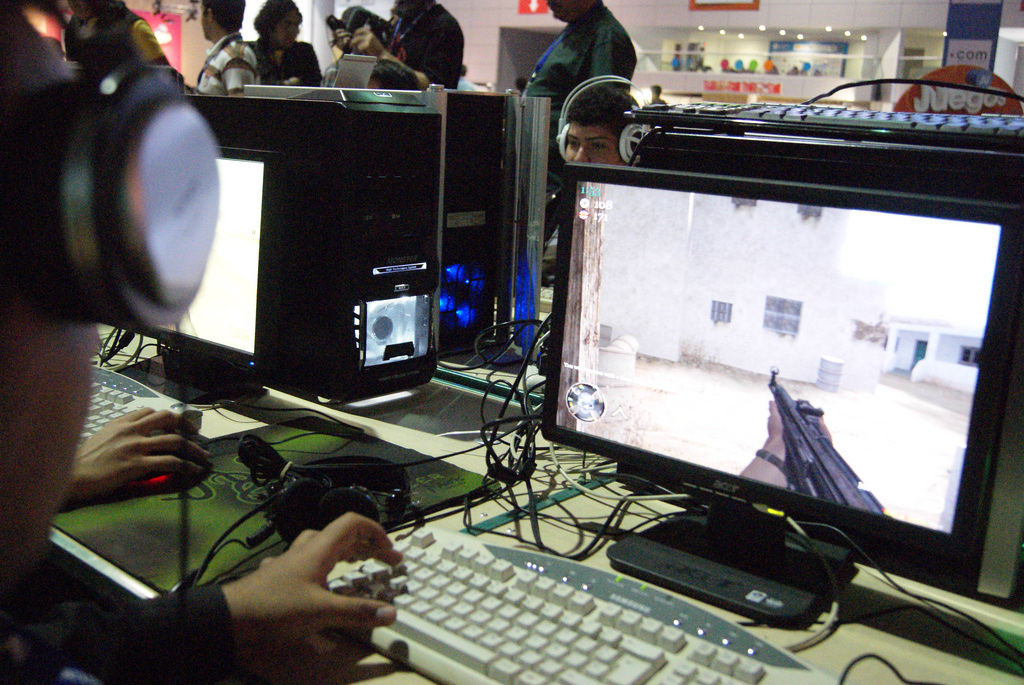By Christopher DeMarcus (The Cascade) – Email
Print Edition: May 21, 2014

When we think about the role of our banks, the speed of our internet connections, the government’s data mining, or how our food is grown, we can’t help but wonder: do corporations rule the world?
Corporations might own the market. But governments still have the monopoly on violence, the power to wage war. Maybe it’s time to lease that job out to businesses, too.
That’s what’s happening with the rise of private military companies (PMCs). The third largest corporation in the world is British military security company G4s, loyal to the highest bidder.
Now is the time to invest in war.
Yet in our nightly news or daily social media feeds, almost no one is talking about how the business of war is being contracted out to corporations. Vice Media — the same group that brought us the MTV series The Vice Guide to Everything and the HBO series Vice — is set to release Superpower for Hire, a documentary about the impact of PMCs. Using Vice’s typical DIY-cowboy-safari style, their film crew jumps into the trenches with private military contractors and corporate soldiers of fortune.
This time Vice has teamed up with an unusual sponsor for the film: the video game franchise Call of Duty. Both are working to promote each other for the release of Call of Duty: Advanced Warfare. The documentary and game are focused on telling the story of a world where flags are replaced by corporate logos. This rare match of real-world journalism and video game fantasy has left reporters, gamers, and citizens wondering if the documentary is actual journalism, or just bombastic advertising.
After a quick viewing of the documentary’s trailer it becomes evident the film is about the real world of PMCs — despite the video streaming from the game publisher’s official YouTube channel with the Call of Duty logo watermarked in the top right-hand corner.
The decline of readership in news media and the rise of multimedia engagement may spawn a future where journalists rely on piggybacking themselves to the video game spectacle.
It doesn’t seem like much of the Call of Duty fan base is concerned about the moral impact of PMCs on the world stage. Most fans of the games are more interested in simulation of the problem rather than the reality. Why should they care? Video games don’t motivate their players to question methods of military and economic power. The job of a good video game is to dazzle more people into playing it. Video games are, first and foremost, commodities.
Of course, after the sales are in, games are more than products. Players can learn more about globalization and international politics by playing simulations based on social realities. You can use gamification to make almost anything fun to learn.
The problem is getting gamers to care about what’s happening outside the simulation — sexism in the geek community is another issue that struggles with getting gamers to consider real-world politics.
The error here is not journalism’s transition from print to interactive media. The problem is the shift from analysis to enjoyment. The partnership between Vice and Call of Duty marks a new space in what we do with information gathering.
News is supposed to give us the knowledge we need to make decisions in our democracy, to make good choices about what our government does for us and others. In this new generation of product brand over substance, news has become more of a product than ever before.
That is not to say news wasn’t always a type of product. Journalists and editors have always worked to create an information source for customers — but that’s not the whole story. Journalism has a priority over the demands of the market. Its mandate must remain: question all sources of power. It must continue to provide information over simulation.
Sure, some Call of Duty fans will pick up on Vice’s documentary. And let’s hope the film, like some of Vice’s previous work, is more than a bull ride through basic training at Walmart. But most of my fellow geeks will ignore the real world impact of PMCs. For them, the game is what matters.
We don’t need to blur the lines between entertainment and news to sell journalism. But we do need to start giving a crap about the news, or infotainment is all we will have left. Perhaps not such a bad future for those who want to live in a dictatorship instead of a democracy.

